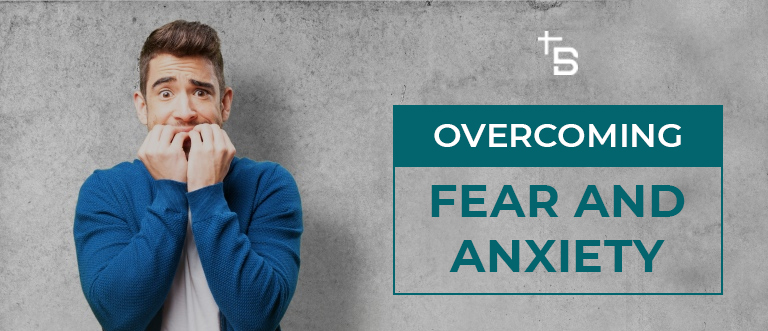In a world tempest-tossed by uncertainty, the human psyche often finds itself ensnared in the maelstrom of anxiety. As the shadows of fear loom, particularly concerning the future, individuals grapple with the unknown like a sailor navigating treacherous waters. The Baha’i teachings offer a distinct framework to transcend this tumult and foster a more serene existence.
Imagine, if you will, a lighthouse standing steadfast against raging waves, illuminating the path for those lost at sea. This metaphor serves to illustrate how the Baha’i principles provide guiding tenets that help individuals cultivate an inner sanctuary amidst the storms of apprehension. These teachings encourage an exploration of the human spirit and its inherent capacity for resilience, fostering a profound understanding of the self and one’s place within the cosmic tapestry.
At the core of Baha’i philosophy lies the conviction that the purpose of life is the development of spiritual virtues. Fear, an omnipresent reality, often diverts attention from this pursuit. When individuals allow anxiety about the future to consume them, they neglect the myriad opportunities for personal growth and service to humanity that exist in the present moment. Engaging with the Baha’i teachings, one can glean wisdom that shifts the focus from dread to hope, essentially transforming the lens through which one views the horizon.
A pivotal aspect of overcoming fear is the recognition of the interconnectedness of all beings. The Baha’i writings emphasize the oneness of humanity, asserting that we are all threads in a grand design. This acknowledgment acts as an antidote to isolation, which can exacerbate anxiety. By embracing our collective journey and the shared experiences of struggle and triumph, individuals can alleviate their fears about the future. This understanding fosters empathy and connectivity, creating a supportive network that is essential for emotional resilience.
Furthermore, the Baha’i principles encourage an attitude of reliance on divine providence. The universe operates under the aegis of a higher power, suggesting that there is an overarching plan even when circumstances appear chaotic. This notion invites individuals to cultivate trust in the unfolding of their lives. One might liken it to the unfolding of a flower; while the process may seem fraught with uncertainty, there is an intrinsic wisdom guiding each petal toward the light. Such trust reinforces the belief that, irrespective of immediate challenges, the future can yield unexpected gifts.
Moreover, the practice of prayer and meditation—integral components of Baha’i spirituality—serves as a formidable tool for managing anxiety. Through prayer, individuals can articulate their fears, thus disentangling the emotional web that often shrouds clarity. The act of turning inward aligns the heart with divine assurance, promoting tranquility. Meditative practices allow for introspection, creating a sacred space in which individuals can confront their fears and gather the fortitude needed to proceed. By committing to these practices, one embarks on an inner journey, discovering the latent strength within.
In addition to individual spiritual practices, the Baha’i community actively promotes collective endeavors to foster societal well-being. In engaging with communal projects, individuals can shift their focus from self-directed anxiety to purposeful action. This shift not only alleviates personal dread but contributes to the larger fabric of progress. Imagine a mosaic—each piece represents an individual’s contribution to the entirety. When these contributions are woven together, they create a vibrant and resilient community, capable of weathering any storm that the future may present.
The Baha’i teachings also extol the significance of learning and adaptation as essential components of personal development. Embracing the concept of lifelong learning allows one to approach life’s uncertainties with curiosity rather than trepidation. Instead of fearing the unknown, individuals are encouraged to view it as an opportunity for exploration. This pivot in perspective can transform anxiety into a catalyst for growth, inclination toward innovation, and the courage to venture into uncharted territories.
Another compelling metaphor lies in the image of the phoenix, a creature that rises anew from its ashes. This imagery encapsulates the transformative potential inherent in overcoming fear. Each individual’s journey, marked by hardships, can lead to profound personal metamorphosis. The Baha’i teachings underscore that trials, rather than being mere obstacles, can act as divine instruments for elevation. By embracing challenges as opportunities to exercise resilience and cultivate virtues, individuals can emerge stronger and more enlightened, ready to navigate the future with confidence.
Ultimately, the Baha’i teachings advocate for a balanced approach to life, characterizing anxiety not as an insurmountable hurdle but as a companion on the journey of existence. By recognizing the transient nature of our fears and entrusting ourselves to a higher power, we can pivot toward hope and empowerment. The principles of unity, trust, prayer, community service, perpetual learning, and personal transformation combine to foster an environment whereby fear of the future can be transcended. As one navigates the ever-changing tides of life, these teachings offer not only solace but also the sails to chart a course toward a promising horizon.
